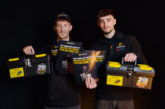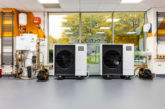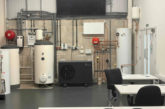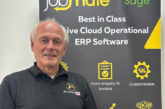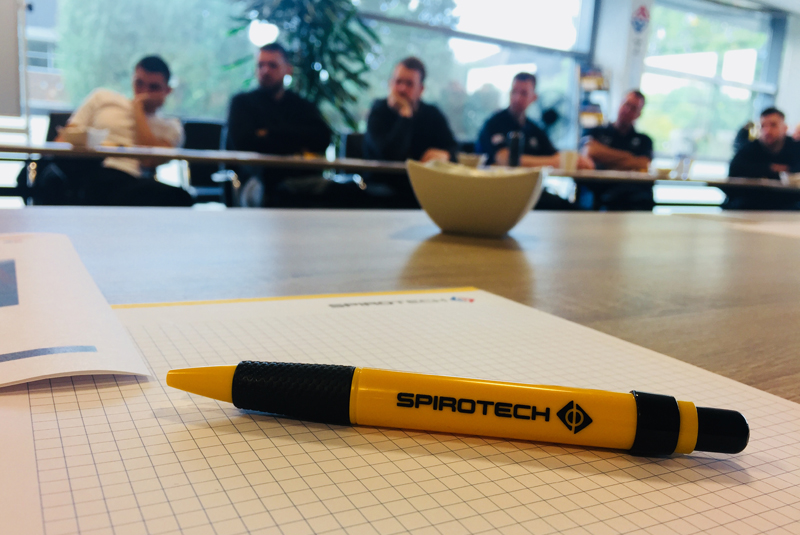
Spirotech’s training course offers a comprehensive look at system protection, with particular emphasis on deaeration. PHPI’s Stuart Duff headed to the Midlands to find out more.
There’s an art to putting together a training course. Striking a balance between the technical and the practical is essential, and Spirotech’s one-day offering manages to find the sweet spot. Packing a wealth of information into a just a few hours, there’s literally never a dull minute. From air and dirt separation to low loss headers, vacuum degassing, pressurisation and chemicals, there’s something for everyone and a lot more besides.
Much of the success lies in the presentation. The course is delivered by knowledgeable and experienced trainers with a knack for making the content relevant and relatable.
Separators, not filters
Integral to the day is a focus on air separation and giving installers a deeper understanding of its benefits for a heating system, as Spirotech’s Rob Jacques explains: “Our products are known as separators, not filters, because they separate the air (and the dirt) from the flow path. We work on Henry’s Law… the amount of gas dissolved in water is in direct proportion to the pressure of that water. In other words, air is released by increasing the temperature of the water, and by decreasing the pressure.”
In a nutshell, heating the water creates microbubbles – which in turn react within the pipework. At 10°C and six bar, each cubic metre of water contains 158l of air. As the pressure drops, the gases are released and can be captured. In Rob’s words: “It’s the air that does the damage. The quality of the water in the system is far more important than the kit that you supply on it.”
So what does removing the air achieve? Greater efficiency is probably the most significant benefit for end users, as it inevitably leads to cost savings. In addition, there’s a reduction in pipe and pump noise (an aspect demonstrated to great effect during the course), elimination of radiator cold spots (evidenced through thermal imaging) and, crucially, dirt prevention. The net result? Less maintenance and increased lifespan.
Domestic and commercial
The course traverses the domestic and commercial sectors, and illustrates just how transferable some of the principles of commercial system protection are to the domestic market – so whatever jobs you’re working on, there’s valuable information to be gleaned.
Installer input
It’s clear that Spirotech appreciates the need to forge relationships with installers, and this extends to the organisation of the training days. The conduit is Damon Steele, an installer who has played a huge part in bringing the two together.
Damon was invited to attend what was essentially a test training day and subsequently teamed up with the company to facilitate courses throughout the year. He explains: “The day I arrange now is basically the same… it’s about air and dirt separation, why you fit them, what happens when you do fit them, and how you should treat the system afterwards.”
What the attendees think
We spoke to some of the installers on the course to find out what had encouraged them to come along and how they found it.
Nathan, Boilerfit – “We already fit the air and dirt separation units but we want to fully understand how they work so we can explain to our customers how important they are for system quality.”
Shaun, Barrett Heating – “We’re really pleased to have come on the course. What we’ve gained is an unbelievable understanding of how we can manage air in systems, both old and new.”
Final thoughts
The last word should go to Damon Steele: “It’s well worth a day out of your busy schedule.”
If you’re interested in attending a Spirotech course, contact @SteeleDamon on Twitter.
To watch our video of the day, click here



